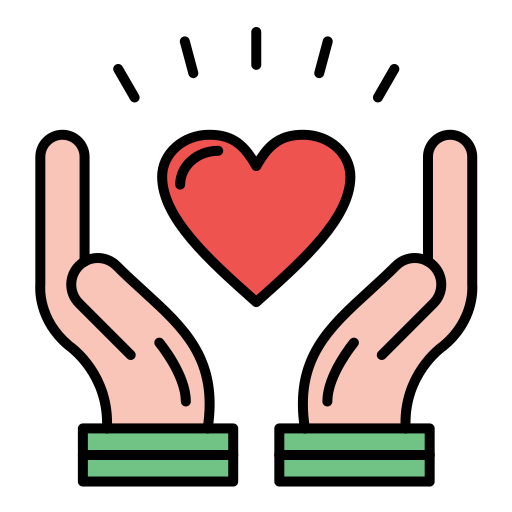Anxiety Recovery
Anxiety Disorder Recovery Online in Ontario and BC
I’ve Been There Too
For years, I struggled with debilitating anxiety disorders. After finding my own path to recovery, I went on to earn my Master’s degree and become a psychotherapist, dedicated to helping you overcome the overwhelming weight of generalized anxiety — and build a life of greater calm, confidence, and freedom.
Once, I found myself caught in an endless loop of worries—about my health, finances, relationships, Social Situations, my work performance, or simply the possibility that something, somewhere, could go wrong at any moment:
1. Catastrophizing Health Symptoms → “I stress about every ache or pain, fearing it’s something severe and life threatening.”
2. Social and Professional Performance → “I feel anxious in work settings, always questioning if I’m doing enough and worrying about what people think of me.”
3. Constant Concerns about my Social interactions → Feeling very anxious in social settings. Alway thinking what people might be thinking about me if I lost control.
4. Physical anxiety symptoms in social situations → “I’m terrified others will notice my shaky hands or quivering voice.”
.5. Constant concerns about money and future → “What if I lose my job or can’t pay the bills?”
6. Very self-conscious about physical anxiety symptoms → “I’m terrified that people in professional settings will notice how shaky I am.”
7. Overthinking day-to-day tasks → “ Simple day-to-day tasks feel near impossible to complete.”
8. ‘What if’ scenarios → “What if everything falls apart tomorrow?”
9. Restless nights → “I can’t sleep because I’m anticipating the worst.”
10. Physical tension → “I feel constantly on edge, like I’m bracing for disaster.”
11. Trouble staying present → “I’m too worried about future problems to enjoy what’s happening now.”
12. Seeking reassurance → “I ask others repeatedly if things are okay because I’m never sure.”
13. Avoiding tasks that you used to do → Sports, driving, flying, socializing..etc because of fear.
If you find yourself dreading the worst and feeling stuck in relentless worry, know that you’re not alone. I’ve been there, too. But there is a way out. Let me help you find relief, reclaim a sense of normalcy, and restore peace to your everyday life.
The Therapy Journey will be Structured, Yet You Set the Pace. I Will Guide You Through a Gradual, Step-by-step process of Healing and Restoring Peace.
The Journey of Anxiety can involve a tumultuous cycle of worry, doubt, and overwhelming concern about daily life. Internally, there’s often a constant battle between the fear of potential catastrophes and the desire for peace and normalcy. Over time, through self-observation and personal insight, there may come a pivotal moment of realization that anxiety itself is fueling much of the distress. This awareness can lead to a gradual shift in focus, the development of personal healing strategies, and a renewed engagement with life beyond these worries. The internal stages of this journey are deeply personal and can vary widely, but they often involve moving from intense worry toward a more balanced, grounded sense of well-being.
Philip Henein. RP. RCC.
I have been through intense debilitating health and social anxiety. But I recovered. Not only recovered, but committed my life to help others recover from Anxiety Disorders. I am a compassionate and dedicated psychotherapist with a deep commitment to helping individuals navigate the complexities of anxiety, depression, and life’s most daunting challenges. Having personally experienced some of these struggles myself, I bring a unique perspective and understanding to my practice, allowing me to connect with clients on a profoundly empathetic level. With a warm and supportive approach, Guided by evidence-based techniques and my journey of resilience, I am here to support you every step of the way to find renewed strength and hope again.

Master’s Degree in Clinical Counselling

7 Years of Clinical Experience

Cognitive Behavioral Therapy Clinician

EMDR Trained Therapist

EFT Couple Therapist

Emotion-focused Therapist

Registered Psychotherapist in Ontario (RP)

Registered Clinical Counsellor in BC (RCC)

Insurance Accepted
Your Therapy Sessions Will Be Covered By Your Extended Health Benefits in Ontario and British Columbia
Stages of Change You Go Through
A vague but growing sense that something could go wrong at any moment. You feel uneasy about unknown outcomes and try to mentally prepare for every possibility.
Concerns begin to multiply— health, social self-image, future, relationships. They start to feel inescapable and urgent.
Fear of “What if?” leads to relentless scenario-planning, attempting to control every variable.
Muscle tension, headaches, or digestive issues manifest as worry intensifies. Distress arises from not knowing whether these symptoms signal a deeper problem, reinforcing the urge to seek certainty or relief through micromanaging health.
Googling symptoms or outcomes, asking friends for validation. Temporary relief may come from reassurance but quickly fades. Craving an absolute guarantee that problems won’t occur, feeling compelled to gather more information to regain a sense of control.
Worries feel insurmountable; you struggle to concentrate on daily tasks. You recognize that no amount of planning can fully eliminate the unknown, yet you continue to try, creating inner tension.
You try exercise, journaling, or other stress relief strategies to calm your mind. Results are mixed. You may hope these methods can help you control every anxious thought. Progress feels fleeting when unpredictability looms.
You get short-lived relief, then a new worry arises—pulling you back into the cycle. The cycle renews whenever you confront another situation that defies certainty. The need to “fix” or manage everything reignites.
You start to see the pattern: it’s not always external issues causing anxiety; it’s anxiety itself driving exaggerated fear. Despite seeing the pattern, you may still think, “But if I could just know for sure…” or “If only I could stop these worries for good.”
Part of you understands these fears might be disproportionate, but another part still panics. You vacillate between rational acceptance and an urgent drive for absolute control over uncertain outcomes.
Recognizing you can’t break the cycle alone, you consult a therapist or doctor. This is a tentative step toward trusting another source of guidance rather than relying solely on your own attempts to control.
Through therapy or structured self-help, you discover how intolerance of uncertainty and the need for control fuel anxiety. Understanding that it’s normal to feel discomfort about the unknown, but also recognizing that seeking perfect certainty is impossible.
You practice specific skills—Acceptance, mindfulness, relaxation, cognitive restructuring—to reframe catastrophic thoughts.
You begin experimenting with tolerating smaller uncertainties and letting go of certain rigid routines, embracing uncertainties.
As you release some control over your health, finances, social image, discomfort initially spikes, but you learn that nothing truly catastrophic happens.
Internal and external stressful triggers bring worries rushing back. You might temporarily revert to old patterns. You realize that building tolerance for uncertainty is a gradual process—perfect mastery isn’t the goal.
You see how your anxious mind automatically leaps to worst-case scenarios. You also see how you attempt to manage the unmanageable. You become more aware of the “If I don’t control it, something awful will happen” or “If I don’t now for sure, I won’t be prepared and disasters will happen” mindset—and begin challenging it.
You deliberately dig deeper to uncover the underlying roots and habits of Anxiety. Learn self-compassion, realistic thinking, and healthy belief system. Each success at tolerating uncertainty helps loosen the grip of needing total control.
You start re-engaging in all previous and new meaningful activities. Work, hobbies, and relationships feel more rewarding as anxiety loses its hold. You begin trusting that you can handle unexpected events without needing a failproof plan.
Periods of calm last longer. When anxiety arises, it doesn’t escalate as quickly or last as long. Your new approach is: “I can’t know everything, and that’s okay. I’ll deal with challenges as they come.”
Anxiety becomes manageable, and its presence doesn’t derail your life. You see uncertainty as a normal part of being human. This shift—recognizing that letting go can feel safer than clinging—sparks deeper peace.
You maintain healthy routines, remain vigilant for old patterns, and adapt as life changes. You’ve internalized a more flexible mindset: you can cope with life’s unpredictability, trusting yourself to navigate challenges without overcompensating for what you can’t control.
Still have questions? I’m here to help.
Take the first step towards a calmer, more balanced life
Get in Touch
Email:
info@Calmiora.com
Phone:
778-767-5090
